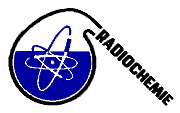Speaker
Dr
Jan Kučera
(Nuclear Physics Institute ASCR, Řež, Czech Republic)
Description
Silicon is an essential element for organisms. Although the biochemical mechanisms remain obscure, dietary Si is considered important for growth and development of bone and connective tissues. Recently, it has been suggested that Si and silicic acid may decrease the bioavailability of aluminium by blocking its uptake through the gastrointestinal tract and by impeding reabsorption in kidney [1]. Aluminium, a neurotoxin, has lately been implicated as one of the possible casual factors contributing to Alzheimer´s disease, since the element is conducive to oxidative stress in the brain, and oxidative damage is the primary risk factor for Alzheimer´s disease and other neurodegenerative disorders. While many foods contain Si in polymeric form or as hydrated silica – opal (phytoliths), bioavailable Si in beer is present in a monomeric form as a soluble orthosilicic acid H4SiO4 [2,3]. It is the Si form, which may decrease the bioavailability of Al, and consequently may afford protection against Al toxicity in brain. For this reason, we studied the Si content in various Czech beers and beer base materials using fast instrumental neutron activation analysis. Lyophilized samples of several Czech beers and beer processing materials from one brewery (barley, sweet and hopped wort, extracted grain, yeast, hop extract and granulate, nonfiltered and filtered beer) were combusted in a nickel crucible at 600°C in air. Water used for hot mashing of barley was preconcentrated by evaporation. Irradiation behind a Cd shield was used for determination of Si via the short-lived radionuclide 29Al resulting from the 29Si(n,p)29Al reaction with fast neutrons in the ash from the above samples, and/or in the water aliquots. Gamma-ray spectra of the irradiated samples and standards were measured by a coaxial HPGe detector coupled to a Canberra Genie 2000 system. For quality control, reference material NIST SRM 2704 Bufallo River Sediment was assayed. The study has shown how Si comes into beer from the individual input materials. In addition to a Si contained in water, barley and hop are the main sources of Si in beer. It is mainly the hot mashing technique, which extracts orthosilic acid from barley’s and hop’s phytolitic silica. The Si concentration in the Czech beers analyzed were in the range of 14 to 44 mg/L, while water used for hot mashing of barley in the studied brewery contained 7 mg/L of Si. Dietary Si intake in the USA is about 20-50 mg per person per day [2], while the British diet has been reported to contain 9-23 mg of Si per person per day, with 60 % derived from cereals with poor bioavailability [4]. Thus it is obvious that moderate beer consumption significantly increases intake of bioavailable Si. Therefore, if the rather controversial hypothesis about aluminium´s neurotoxicity holds, beer drinking should be considered a protective factor in preventing Alzheimer´s disease and other Al induced neurodegenerative disorders.
References
1. M.J. Gonzáles-Muňoz, A. Peňa, I. Meseguer. Food Chem. Toxicol., 46 (2008) 49-56.
2. S. Sripanyakorn, R. Jugdaohsingh, H. Elliot et al.: British J. Nutr., 91 (2004) 403-9.
3. M.J. Gonzáles-Muňoz, I. Meseguer, M.I. Sanchez-Reus et al.: Food Chem. Toxicol., 46 (2008) 1111-18.
4. J.P. Bella, J.D. Birchall, N.B. Roberts: Lancet 343 (1994) 235.
Primary author
Dr
Jan Kučera
(Nuclear Physics Institute ASCR, Řež, Czech Republic)
Co-authors
Dr
Ivana Krausová
(Nuclear Physics Institute ASCR, Řež, Czech Republic)
Dr
Pavel Dostálek
(Institute of Chemical Technology Prague, Czech Republic)
Dr
Václav Potěšil
(Pivo Praha, Ltd., Prague, Czech Republic)

